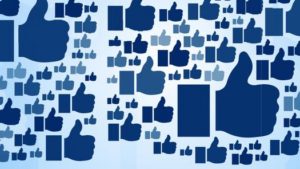Amanda Hess has a thoughtful piece in the NYT about proposed tech fixes for the ‘filter bubble’ problem that has supposedly fractured democratic discourse in the US and elsewhere. She lists numerous well-meaning attempts — from browser plug-ins to iPhone apps — to use technology to help Internet users escape their personal bubbles.
It goes without saying that the motives behind these initiatives are good. (Ms Hess calls them “kumbaya vibes”.) The question is whether they really address the problem, which is rooted in human psychology — confirmation bias, homophily, etc.
The same social media networks that helped build the bubbles are now being framed as the solution, with just a few surface tweaks. On the internet, the “echo chambers” of old media — the ’90s buzzword for partisan talk radio shows and political paperbacks — have been amplified and automated. We no longer need to channel-surf to Fox News or MSNBC; unseen algorithms on Facebook learn to satisfy our existing preferences, so it doesn’t feel like we’re choosing an ideological filter at all.
But now, no entity is playing the filter bubble crisis more than Facebook itself. The company’s leader, Mark Zuckerberg, has published a manifesto of sorts, “Building Global Community,” which jockeys for Facebook to seize a central role in opening our minds by exposing us to new ideas.
Just last summer, the company was whistling a different tune. In a blog post called “Building a Better News Feed for You,” Facebook declared that the information it serves up is “subjective, personal, and unique — and defines the spirit of what we hope to achieve.” That all seemed harmless when the network was a site for reconnecting with old high school friends, but now Facebook is a major driver of news. (A Pew study from last year found that 62 percent of Americans get news on social media.) And as Mr. Trump rose, Facebook found itself assailed by critics blaming it for eroding the social fabric and contributing to the downfall of democracy. Facebook gave people what they wanted, they said, but not what they needed. So now it talks of building the “social infrastructure” for a “civically-engaged community.” Mr. Zuckerberg quoted Abraham Lincoln as inspiration for Facebook’s next phase.
Ms Hess also astutely points out that some of these ideas have partisan roots. The new tools for providing liberals with an insight into how other people think have a whiff of utilitarianism. The philosophy is that to win next time — and restore the old neoliberal order — we just need to know what the hoi-polloi are thinking. Which is a neat way of avoiding what really needs to happen, namely for ruling elites to hear the signal in the populist noise and accept the need to revise the way they think about politics and the world. As Carleigh Morgan, perceptively puts it, “exposure to new ideas and a commitment to listening are not the same”. Or, as Ms Hass puts it,
President Trump’s critics feel the practical need to break down these ideological cocoons, so they can win next time. Charlie Sykes, a former conservative radio talk show host who was blindsided by Mr. Trump’s win, now writes of the need to dismantle the “tribal bubble” of modern American politics, where citizens are informed through partisan media and bullied into submission by Twitter mobs. And Sam Altman, the president of the start-up incubator Y Combinator, recently set out from the liberal Silicon Valley and traveled across America to better understand the perspectives of Trump voters. His final question to them: “What would convince you not to vote for him again?”
It will be more difficult to entice Trump supporters to consider alternative perspectives, and not just because the president himself has declared the mainstream media the “opposition party.” As members of the winning team, Trump supporters have no urgent need to understand the other side.
Very good, thought-provoking piece. And repeat after me: there is no purely technological fix for the mess we’ve got ourselves into.

